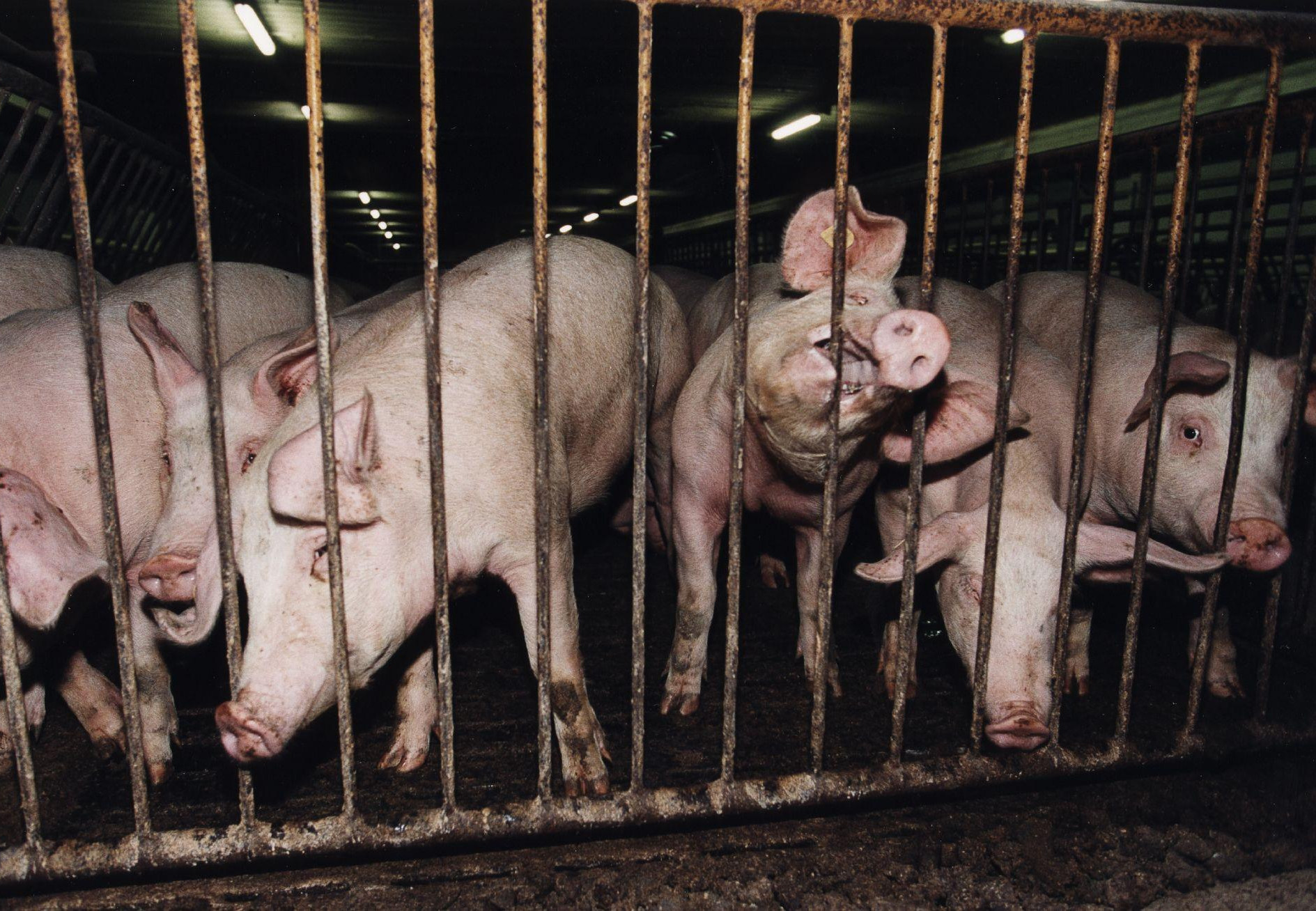
Next Pandemic Could Come from American Animal Industries Leading to “Deadly Outbreak”
Animal welfare organisation warns of zoonotic disease spreading because of high degree of animal use in the U.S.
New York/ Vienna, 25 July 2023 – A new study by Harvard Law School and New York University has concluded that the next pandemic could start in the United States through animal industries such as wildlife trade, live animal markets, fur farming, industrial animal agriculture and the use of animals for entertainment.
The report examines how humans, livestock, and wild animals interact, with it finding that, at present, the United States has “no comprehensive strategy” to mitigate zoonotic disease risk.
FOUR PAWS, the global animal welfare organisation aiming for better animal welfare via a One Health approach to enable health for all and equity has called the report “alarming” and potentially a “ticking time bomb which should not be ignored” by key US legislators and regulatory bodies at a federal and state level.
Nina Jamal, FOUR PAWS´ Head of Pandemics, said, “The report by the two leading universities in this field is alarming and one we cannot ignore. Pathogens of pandemic potential can spillover to humans anywhere, they are tied to high-risk practices across the human-animal-environment interface that can trigger outbreaks.
“Scientific studies show that 75 percent of emerging infectious diseases are zoonoses, meaning they are of animal origin. Zoonoses are a clear symptom of the serious crisis between humans, animals and the environment.”
According to the Center for Biological Diversity and USDA Economic Research Service, in 2019, the United States legally imported more than 224 million live wild animals and 883 million wildlife products worth over $4.3 billion. In addition, over 22 million livestock animals were imported, at a value of roughly $3.5 billion.
Currently, the World Health Organization (WHO) member states are negotiating the “Pandemic Treaty”, which aims to be the first international legally binding agreement designed to protect the world from future pandemics in light of COVID-19.
Jamal concluded, “We all now know what a global pandemic looks like, but the next one could be far worse with a greater mortality rate than COVID-19 if we do not act globally and focus on prevention at source rather than only preparedness and response. There is a looming pandemic, and to prevent outbreaks of pandemic potential, WHO member states must incentivize the implementation of prevention measures within the WHO´s international treaty on pandemic prevention, preparedness and response, while following a holistic One-Health approach.”
Professor Ann Linder, Associate Director of Policy & Research at Harvard Law School, who was an author of the report, said, "Just as animal use is everywhere, zoonotic risk is everywhere too—with pathogens circulating unseen but all around us. But the U.S. has no comprehensive strategy to address these risks and lacks even basic information about many of the industries that generate them. Lawmakers and regulators need to consider whether each of these forms of animal use justifies the risk it poses and work to reduce these threats wherever possible. For activities that present great risk but relatively little value, economic or otherwise, the answer may simply be, “no.” At present, we are not doing enough, and we're left vulnerable as a result."
Scientists from the Imperial College of London only last week found that “mink, more so than any other farmed species, pose a risk for the emergence of future disease outbreaks and the evolution of future pandemics."
Melanie Lary, Research and Campaigns Officer for FOUR PAWS’ Boston-based office explained, “FOUR PAWS has been making these correlations for years: That the welfare of animals has a direct influence on the health of humans around them. Zoonotic diseases are an example of the dangers of this relationship where infections are spread between humans and animals. Specifically, factory farming, with the sheer quantity of animals, the confinement and conditions, the use of antibiotics, and need for close contact with humans, is a literal breeding ground for diseases. We must take a hard look at these systems and mitigate the risk they pose to Americans and the world."
Background
Harvard Law School and NYU: Animal Markets and Zoonotic Disease in the United States: https://animal.law.harvard.edu/wp-content/uploads/Animal-Markets-and-Zoonotic-Disease-in-the-United-States.pdf
Imperial college // Mink farming poses risks for future viral pandemics: https://www.pnas.org/doi/10.1073/pnas.2303408120
WHO Pandemic Treaty: https://www.who.int/news-room/questions-and-answers/item/pandemic-prevention--preparedness-and-response-accord
FOUR PAWS on Social Media
Stay up to date on this topic and on all FOUR PAWS activities on our social media channels:
or subscribe to FOUR PAWS International newsletter.
FOUR PAWS is the global animal welfare organisation for animals under direct human influence, which reveals suffering, rescues animals in need and protects them. Founded in 1988 in Vienna by Heli Dungler and friends, the organisation advocates for a world where humans treat animals with respect, empathy and understanding. The sustainable campaigns and projects of FOUR PAWS focus on companion animals including stray dogs and cats, farm animals and wild animals – such as bears, big cats and orangutans – kept in inappropriate conditions as well as in disaster and conflict zones. With offices in Australia, Austria, Belgium, Bulgaria, France, Germany, Kosovo, the Netherlands, Switzerland, South Africa, Thailand, Ukraine, the UK, the USA and Vietnam as well as sanctuaries for rescued animals in eleven countries, FOUR PAWS provides rapid help and long-term solutions. www.four-paws.org

